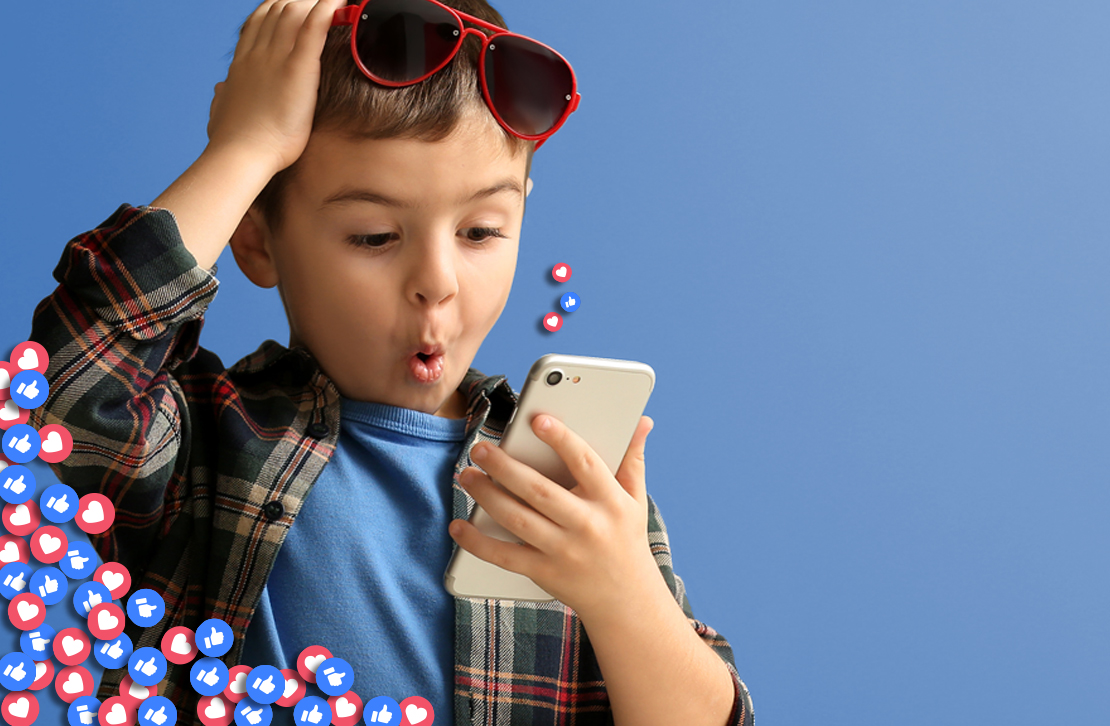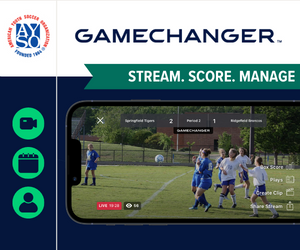By Katie McKee
Social media. Screen time.
They are a part of our daily lives. Because so much of life now revolves around screens and social media, we thought it was a great time to address this dynamic and provide you with tips and tools to help navigate this sometimes tricky part of life.
If you’re like me, you too get sucked down the rabbit hole of social media and screen time. Roughly 78-88% of people ages 18-49 use at least one form of social media. Chances are you know a youngster or have one yourself who has access to things like Instagram, Facebook, and YouTube, and can be glued to a screen with content at their fingertips. Schools even use screens as an educational tool nowadays. As of a 2015 study, teens are consuming media nearly 9 hours a day, and kids between ages 8-12 spend on average nearly 6 hours a day.
I sometimes miss the days where social media, smartphones, and screens weren’t such a major part of daily life, but the fact is they’re here to stay, so it’s important for parents and coaches to understand the impacts they have, both positively and negatively.
Let’s look at some pros and cons:
CON: There’s a part of the brain called the frontal lobe, and one of its jobs is to decode social interactions. Too much time on screens can interfere with the development of the frontal lobe, therefore affecting one’s ability to read social cues, as well as how to act and react in social settings. Screens can also slow the development of language and creative thinking amongst younger users when overused.
CON: Social media can create comparisons and pressures that are unhealthy and unreal. Think about the basic premise of Instagram; post pictures, get likes. Pretty soon, one finds themselves posting things only for the likes, and when those likes don’t match the expectations, it can lead to disappointment, stress, anxiety, and sometimes even depression. We sometimes see this amongst youth athletes when social media is used for exposure. Youth (and sometimes parents) want the best opportunities to excel, be seen and network. In today’s world, one of the most common ways to do that is to create a sport or athlete specific social media account. These types of accounts are a place for an athlete to showcase their talents and gain exposure to teams, coaches, and programs they might not have had access to otherwise. While that may lead to some wonderful opportunities, it can also have some downsides that should be considered as well. Things like unhealthy comparisons, false expectations, false confidence, and stress can be a direct result of a social media account with the sole purpose of exposure.
CON: Social media also tends to heavily favor only the “positives”. Most accounts prefer not to post the hardships, mess-ups, or failures that are a part of life and sport. Seeing only the “good stuff” can create unreal expectations, affect confidence and self-esteem.
CON: Social media can create a sense of selfishness, where self-promotion trumps team promotion or humility. In some extreme cases, young athletes skip team practices or functions but still post self-promotion content to their accounts when they were supposed to be with their team. In many sports, and especially soccer, it’s a great idea to foster a team first mentality.
PRO/CON: In addition to creating accounts that are geared towards self enhancement and highlighting one’s personal talents, social media is also a place where youth can follow other athletes to learn skills and get tips that might help their own athletic endeavors. This can be a pro and a con, dependent on the content.
PRO: Social media/screen time can create a love
of learning.
PRO: Social media can expose youth athletes to techniques or drills they might not have known about otherwise.
PRO: Screen time can help develop the skills and brain function necessary to succeed in such a fast paced, technological world.
PRO: At the very minimum, they are a way to communicate with friends and family.
PRO: Active screen time, defined as cognitive and/or physical engagement in the process of device usage, can benefit learning beyond that of “mindless” screen time, by presenting users with challenges as well as intriguing content.
Youth are still figuring out who they are and how they tick. While social media brings with it a lot of real side effects, it doesn’t mean that those side effects will happen to your child. But they are certainly possible. The key is to be open and honest about the pros and cons of social media and screen time, and to set boundaries as to how you prefer it to be used in your house and on your team.
I know it can seem overwhelming and you might be unsure how to proceed. There isn’t one right answer, but there are some things you can do to.
Set clear boundaries and limits. According to the American Academy of Pediatrics, children between the ages of two and five should use screens for less than one hour per day. For older kids, two hours a day is a good limit. Be clear with your kiddos and players about what the boundaries are. The Positive Coaching Alliance created a social media contract that is also great for teams. You can check it out here. www.ayso.org/pcacontract
Emphasize academics and educational content. Social media and screen time can be a great tool for learning, and when used right, can benefit youngsters on and off the field. Just keep tabs on what they are watching and who they are following.
Talk about the pros and cons. Talk about the benefits and downsides of screen time and social media, so the ugly parts of social media have less of an influence on their confidence and self-esteem.
Delay giving kids a Smartphone. I know it’s hard, but see how long you can hold off. Whatever you decide, stick to it.
Be a good role model. You might find that following the boundaries and limits you set is hard, but try your best to be a good example for youngsters. Children learn from parents and coaches, so teach them that screens aren’t the most important priority.
Establish screen-free zones. At practice and games, at the dinner table, during certain times throughout the day. For kids and adults alike, establish these rules and stick to them. Make promoting healthy habits a family affair!
Katie McKee, M.A., is a Mental Performance Consultant and AYSO coach in the Redondo Beach, CA area. She works with players, teams, coaches, and parents on the mental side of performance. For more information or to get in touch with Katie, please visit her website www.mindfit-performance.com.
References
How to educate your child in healthy device use: active vs passive screen time
February 12, 2018
https://kidslox.com/blog/active-screen-time-vs-passive/
How Social Media Is Directly Affecting Your Mental Health
By Danielle L’Ecuyer
https://healthprep.com/mental-health/how-social-media-is-directly-affecting-your-mental-health/?utm_source=bing&utm_medium=search&utm_campaign=328752041&utm_content=1145691676999720&utm_term=social%20and%20media
Is Social Media Bad for Teens’ Health
By Henry Fersko
Oct 9, 2018
https://www.unicef.org/stories/social-media-bad-teens-mental-health
What screen time does to a child’s brain
June 5, 2018
https://www.nbcnews.com/better/video/the-impact-of-electronics-on-a-child-s-brain-1235967043828
Teens: This is how social media is affecting your brain
Susie East, for CNN
Aug 1, 2016
https://www.cnn.com/2016/07/12/health/social-media-brain/index.html
Your Child’s Brain on Technology: Social Media
Hank Pellisier
April 2, 2019
https://www.greatschools.org/gk/articles/child-brain-development-and-social-media/
The Pros and Cons of Athlete’s Using Social Media
Sarah Daren
https://www.coachesclipboard.net/athletes-and-social-media.html
The Impact of Social Media in Sports
Chenghoa Ma
Nov. 21, 2018
http://thesportdigest.com/2018/11/the-impact-of-social-media-in-sports/
Impacts of Social Media on Young Athletes
Inetwork
Aug. 21, 2018
https://www.leaguenetwork.com/impact-of-social-media-on-young-athletes/
How Using Social Media Affects Teenagers
Rachel Ehmke
https://childmind.org/article/how-using-social-media-affects-teenagers/
How Teens and Parents Navigate Screen Time and Device Distractions
August 22, 2018
https://www.pewinternet.org/2018/08/22/how-teens-and-parents-navigate-screen-time-and-device-distractions/
Social Media Use By Age
January 11, 2017
https://www.pewinternet.org/chart/social-media-use-by-age/
Teens spend nearly nine hours every day consuming media
By Hayley Tsukayama
November 3, 2015
https://www.washingtonpost.com/news/the-switch/wp/2015/11/03/teens-spend-nearly-nine-hours-every-day-consuming-media/?utm_term=.514fdff4be07
The Surprising, Research-Backed Benefits of Active Screen Time
By Sandy Oreo
Mar 1, 2019
https://www.edsurge.com/news/2019-03-01-the-surprising-research-backed-benefits-of-active-screen-time
The Pros & Cons of Screen Time: How to Manage Your Child’s Use
By Stacy Leatherwood Cannon, M.D.
December 8, 2018
http://www.henryfordlivewell.com/pros-cons-screen-time/
Positive Coaching Alliance Student-Athlete Social Media Agreement
https://devzone.positivecoach.org/resource/worksheet/student-athlete-social-media-agreement
How Athletes Can Optimize Social Media On and Off the Field
By Guest
February 16, 2016
https://www.adweek.com/digital/joe-caporoso-guest-post-athletes-optimize-social-media/


























